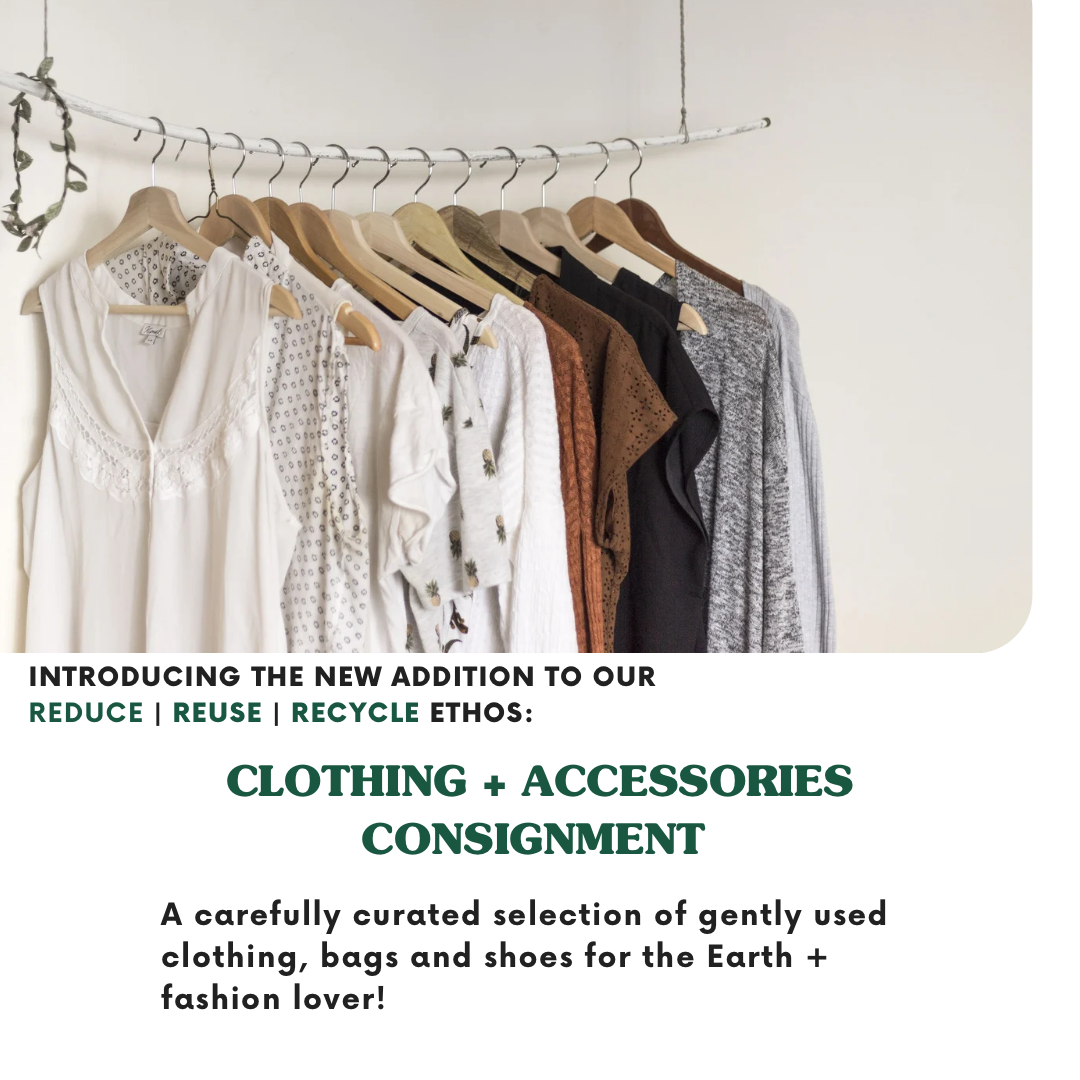Looking cute can come with a cost, and that’s much more than what you see on the price tag. Fast fashion is having a detrimental impact on our planet. The allure of trendy, affordable clothing has come with a significant environmental price tag.
Have you heard of "slow fashion"? This growing movement is emerging as a powerful antidote to the throwaway culture that has been choking our planet. It’s an approach that asks for more careful consideration about an item’s provenance - from the fabric to the hands that made it, to the life cycle of the piece, and more.
At Delish General Store + Jar Bar Refillery, we have passion for fashion, but we're also committed to sustainability. Here’s how slow fashion has reshaped the way we think about style and its profound benefits for the environment.
THE DARK SIDE OF FAST FASHION
Fast fashion is synonymous with rapid production and consumption. It's the system where clothing is mass-produced, quickly dispatched to stores, and then discarded almost as swiftly. Think: being “on trend”, “cheap and cheerful” and “clothing haul videos”. The consequences of this model are staggering. Here's how fast fashion is harming our planet:
1. Excessive Waste: Cheaply made garments often end up in landfills after just a few wears. This creates a massive problem of textile waste, which decomposes slowly and releases harmful chemicals into the environment.
2. Environmental Degradation: Fast fashion's production processes consume vast amounts of resources, including water and energy. Additionally, it contributes to deforestation and habitat destruction, driven by the need for raw materials like cotton and synthetic fibres.
3. Exploitation of Labor: To keep prices low, fast fashion often relies on cheap, often unethical, labor practices in low-wage countries, contributing to poor working conditions and unfair wages.
4. Use of Synthetic Fabrics: Synthetic fabrics are made by chemical synthesis, and would not otherwise be found in nature. Most of these man-made fibres are made from chemicals based on oil products, derived from coal, oil or natural gas. None of these fabrics are biodegradable.
THE RISE OF SLOW FASHION
Slow fashion represents a complete departure from this unsustainable model. It's a conscientious approach to clothing that prioritizes quality, longevity, and ethical practices. Slow fashion focuses on:
1. Quality Over Quantity: Slow fashion encourages consumers to invest in high-quality garments that are designed to last, reducing the frequency of clothing disposal.
2. Ethical Production: It emphasizes fair wages, safe working conditions, and sustainable sourcing of materials. This promotes both environmental and social responsibility.
3. Timeless Style: Slow fashion isn't concerned with fleeting trends. Instead, it offers timeless designs that remain relevant season after season, reducing the pressure to constantly buy new clothes. Classic pieces that stand the test of time, and you will keep pulling out of the closet, year after year.
THE DELISH DIFFERENCE
At Delish General Store + Jar Bar Refillery, we do not want to be just a fashion destination; we want to be a sustainability hub. We understand the joy of fashion—the feeling of confidence and self-expression that a great outfit can bring. But we also believe that fashion shouldn't cost the earth. That's why we've embraced slow fashion and consignment as part of our mission.
By supporting consignment, you're doing more than just enhancing your wardrobe; you're actively participating in the fight against fast fashion's devastating effects. Here's how:
1. Extending Garment Lifespan: Consignment allows well-loved pieces to find new homes, preventing them from ending up in landfills prematurely.
2. Reducing Carbon Footprint: By choosing pre-loved clothing, you're reducing the demand for new production, which, in turn, decreases the carbon footprint associated with manufacturing and transportation.
3. Supporting Sustainable Practices: Consignment shops often have a keen eye for quality and style, curating collections that align with the principles of slow fashion.
Fast fashion may have become the norm, but the rise of slow fashion is proof that change is possible. We invite you to join us on this journey toward a more sustainable and stylish future. Let's embrace fashion that not only looks good but also feels good because it respects people, animals, and our precious planet. Together, we can make a significant difference—one stylish, eco-conscious choice at a time.

